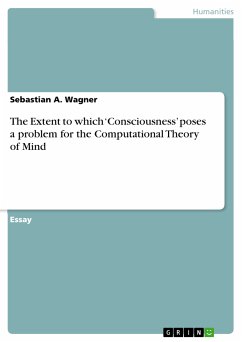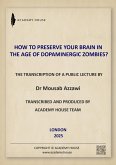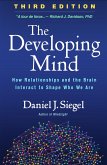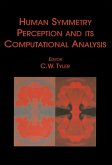In Psychology, many theories and models use process charts resembling circuit diagrams of technical devices. In this account, human behaviour and experience appears to be the result of processes taking place in the 'black box' named cognition. In this context, "computationalism is the view that computation [...] can offer an explanatory basis for cognition" (Davenport, 2008, p.1). The Computational Theory of Mind (CTM) has developed on this foundation, attempting to reveal what is inside this 'black box'. In contrast, human consciousness being a part of cognition (Harnad, 1994) seems to be beyond any scientific explanation. This essay will critically discuss the extent to which consciousness poses a problem for the CTM - regarding issues surrounding consciousness as an area of scientific study, the extent to which consciousness is explicable in computational terms, explanations of consciousness, and Dennett's (1991) different account to consciousness. It will be argued that consciousness does pose a major problem for the CTM, especially when it is conceptualised as subjective experience. It will conclude that Cognitive Science should presently focus only on certain aspects of consciousness, called the easy problems.
Dieser Download kann aus rechtlichen Gründen nur mit Rechnungsadresse in A, B, BG, CY, CZ, D, DK, EW, E, FIN, F, GR, HR, H, IRL, I, LT, L, LR, M, NL, PL, P, R, S, SLO, SK ausgeliefert werden.









